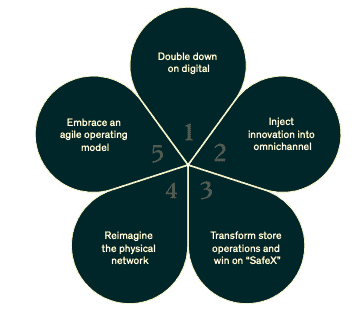
Share this article
Share this article
With social distancing as the new normal, words like “travel” and “contact” are considered taboo. Customers and companies alike have adapted in unique ways to handle the challenges of the pandemic. The key differentiator is visible in companies that embraced adaptation. They have experienced higher levels of success despite the challenges presented during the crisis. They have adapted to the remote work trend and taken advantage of the tech innovations available to sustain operations across the value chain.
In the realm of customer support, a new assistance model has emerged to fit the growing trends sparked during the pandemic. Those who have never used video call software before have suddenly become experts, as remote communications technology has provided a real-time, live interaction to replace in-person meetings. The customers’ willingness to take more hands-on approaches to solve their issues, plus companies’ reactivity in providing new omnichannel support options have led to increased resiliency during the pandemic.
Amidst the changes during and following the Covid-19 pandemic, customers have adapted to doing everything from home. This includes independently finding solutions to problems that would typically prompt them to seek help in stores or request that a customer service technician come help them at home. This more hands-on approach, while necessary, also led to multiple months during which the rate of customer service tickets steadily increased.
As the peaks of the virus subsided, however, customer support teams noted that these numbers stabilised, although, the average number of support requests remains 16% higher than the pre-Covid levels. While this puts increased pressure on companies to provide increasing levels of support, customers have also taken it upon themselves to be more independent. Since the crisis, the number of visits to online customer help center resources has increased even more than the number of support tickets, demonstrating that customers are willing to try to resolve basic issues on their own.

With an increase in the number of support tickets, companies must respond accordingly and with the flexibility to accommodate new changes in customer support. When countries around the world began closing stores, implementing confinement measures, and restricting travel, companies could no longer send out customer support agents to resolve issues in person. Therefore, to continue to provide exceptional customer support, there has been an increase in omnichannel services.
Even before the pandemic, 60% of customers were using multiple channels to interact with a company, according to Deloitte. In addition, 72% of customer interactions are expected to use new technologies, like chatbots or mobile applications, by 2022. As a result, this push to provide new communication channels was a logical step for many companies.
Zendesk announced that about 3,600 companies in their dataset reported “stable” problem resolution times during the crisis. They achieved this by adding new customer support options such as self-service and live channels, help centers, and phone and chat opportunities. For more specialised support beyond a simple question that can be answered over chat, companies have turned to real-time, video communications where experts can resolve issues and guide customers from a distance.
Video collaboration technology has been a particularly useful tool to combat travel and access restrictions between companies and customers. As an example, QIMA is an organisation whose business is based on quality control. Their product inspections prevent quality problems and supply chain disruptions for customers once the products are on shelves. Typically, they send inspectors to their clients’ on-site locations to verify that compliance rules and regulations are being followed. Due to the pandemic, however, they were required to digitalise their entire inspection process so that they could perform remote inspections.

Now, they provide the option of guiding inspections in which an expert QIMA supervisor with experience in managing inspectors guides factory staff remotely through the steps of a product inspection thanks to live-streaming technology. During these guided instructions, the expert helps factory staff collect evidence of key findings on the product’s quality. The ability to adapt their business process and perform remote inspections when on-site inspections were impossible allowed QIMA to continue operations while ensuring the safety of their employees.
The Covid-19 crisis has disrupted every process in our lives. Both customers and companies must remain adaptable to survive the continuing crisis and its aftermath. Speed, innovation, and agile practices were always common in certain sectors, but today, all industries must find ways to streamline processes, re-prioritise resources, and effectively collaborate from a distance. While the future of in-person customer support remains uncertain as many countries are experiencing new peaks of the virus, adaptability will create resilience. With omnichannel support options on the rise, many companies are turning to remote video communication tools to provide real-time, personalised support from a distance.

Free E-book available now!